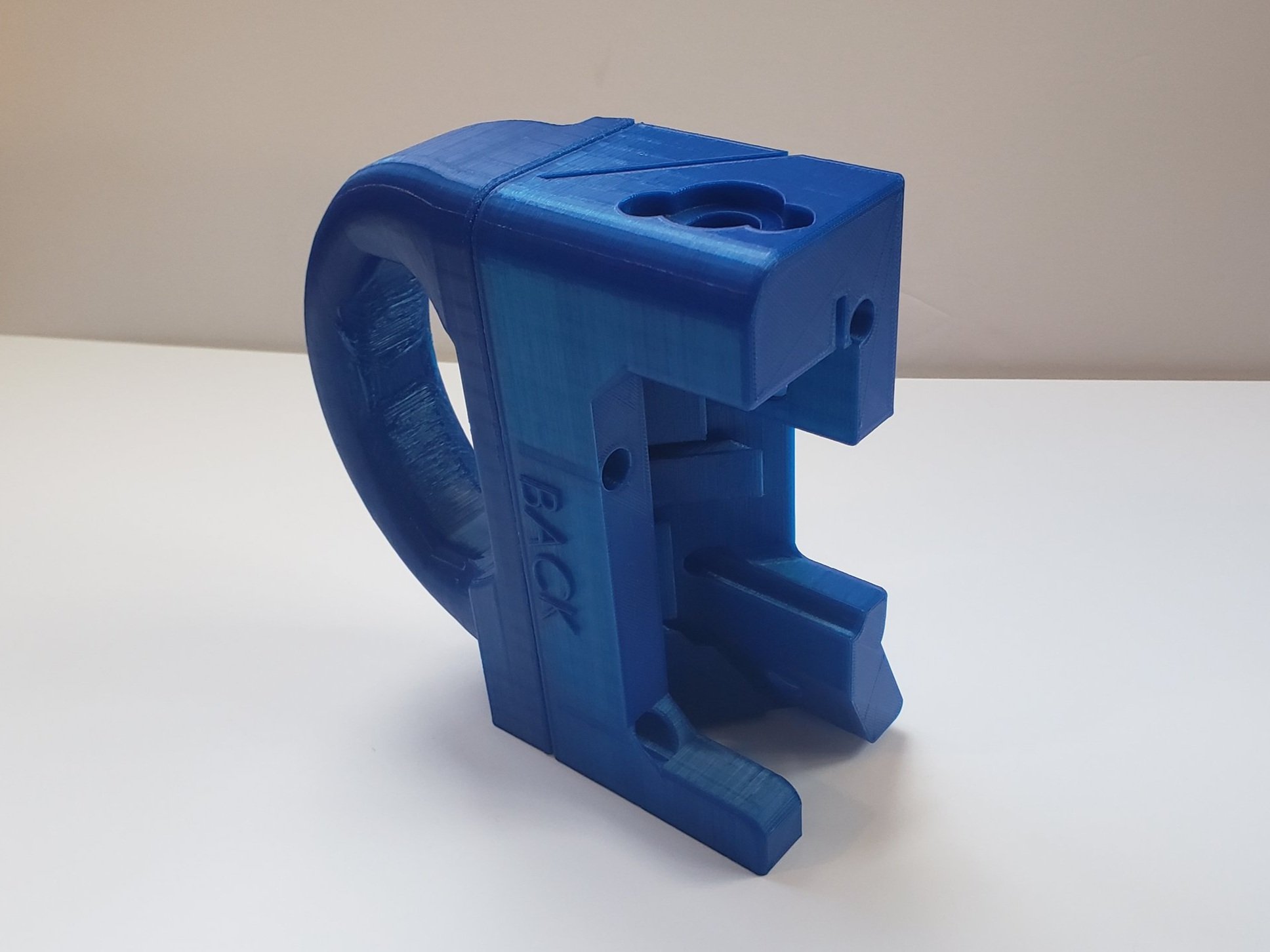Drill Jig
Creates consistent and accurate channels for wires to pass through by guiding users drill bit
In order to pass wires through the extrusion, three perfectly aligned drills were needed
Drill Faces and Axis
Wire Channel
Guiding wire sleeve through wire channel after jig was used
Development
I made an initial concept prototype to test the fit and locations of the bushing holes.
I made some tweaks to the design and came up with a V2 before doing user testing.
The offset that worked with the 3D printed extrusion did not work for the real extrusion
The handle was too small and weak to live in the shop
The labels needed to be large and clear
User Testing
Takeaways from users:
Bushings would pop out after more than a few uses
It was confusing to initially get on the extrusion correctly
Overall, felt too fragile since it would get tossed around
After researching options, I decided to ditch the standard bushings and replace them with lockable versions held in by threaded inserts. By increasing the surface contact between the 3D print and hardware, but more importantly having the screws preventing any rotation of the bushing, this new system created strong holds during drilling.
New Version
Communicated much more with user
Felt sturdier and heftier
More comfortable and ridged handle
Had bushing improvements
Indented line shows user where to line up cut extrusion
And that brings us to the final version of the jig!




















